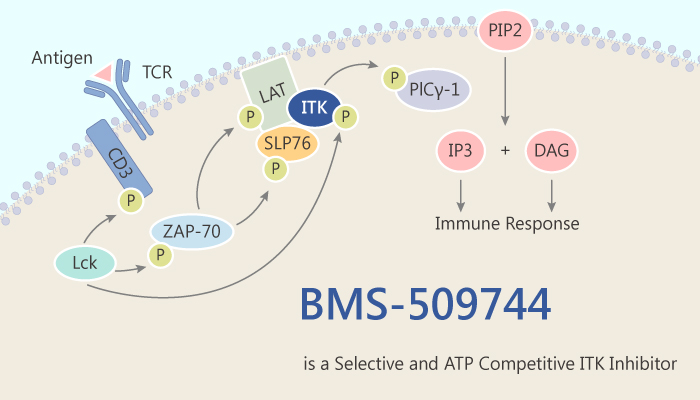In general, proper immune responses depend on T-cell activation during antigen presentation. However, relaxation of t-cell stimulation often leads to autoimmune and inflammatory diseases. The use of T cell activation has been one of the strategies for developing immunosuppressants to treat autoimmune diseases and inflammation. Inhibiting host immune function by blocking t-cell activation is also a successful way to prevent organ transplantation rejection. A study from Tai-An Lin discovered and identified BMS-509744 as a selective and ATP competitive ITK inhibitor.

The authors carried out a series experiments both in vitro and in vivo. BMS-509744 reduces TCR-induced function, like PLCγ1 tyrosine phosphorylation, calcium mobilization, IL-2 secretion, and T-cell proliferation. BMS-509744 also significantly diminishes lung inflammation in a mouse model of ovalbumin-induced allergy/asthma.
In detail, in vitro, BMS-509744 potently inhibited Itk in vitro with IC50 values of 96 and 19 nM, respectively. Additionally, BMS-509744 exhibited competitive kinetics with respect to ATP, suggesting that they bind to the ATP binding site of the Itk kinase domain.
In vivo, BMS-509744 suppressed the production of IL-2 induced by anti-T-cell receptor antibody administered to mice. Furthermore, BMS-509744 exhibited a 50% inhibitory capacity when dosed at 50 mg/kg, irrespective of the amount of induction antibody. BMS-509744 also significantly diminished lung inflammation in a mouse model of ovalbumin-induced allergy/asthma.
To conclude, Itk is a therapeutic target for immunosuppressive and inflammatory diseases. BMS-509744 is a promising compound, but there is still a lot of work need to be done.